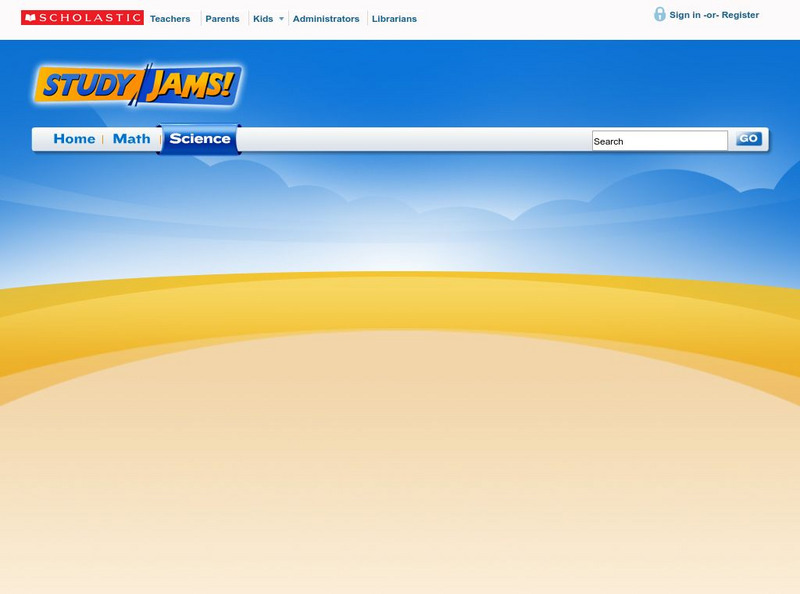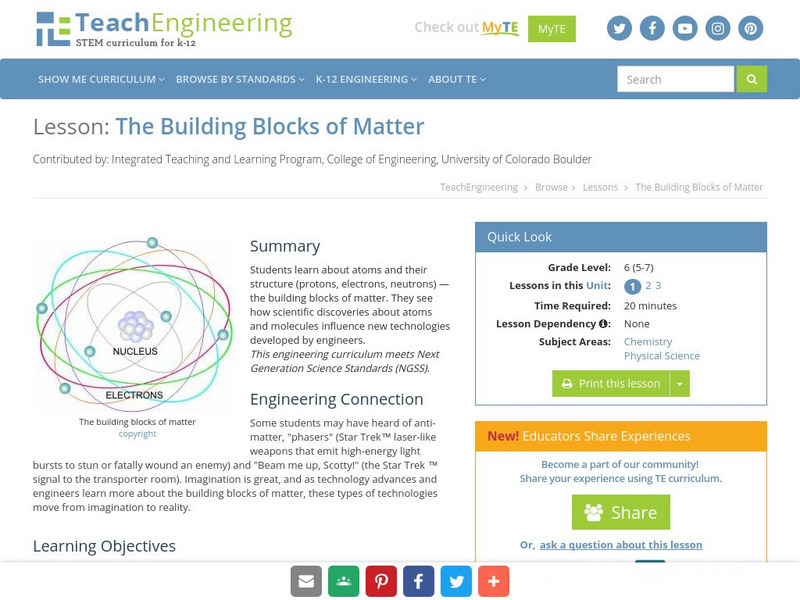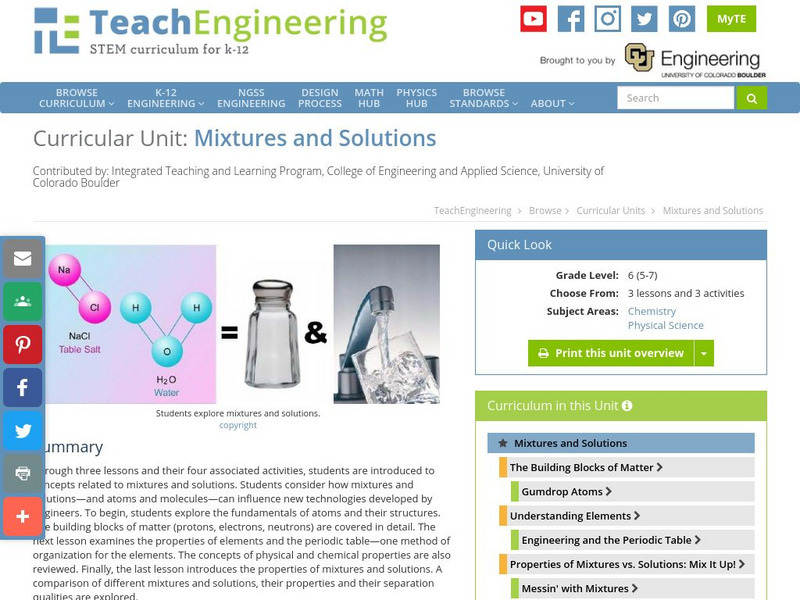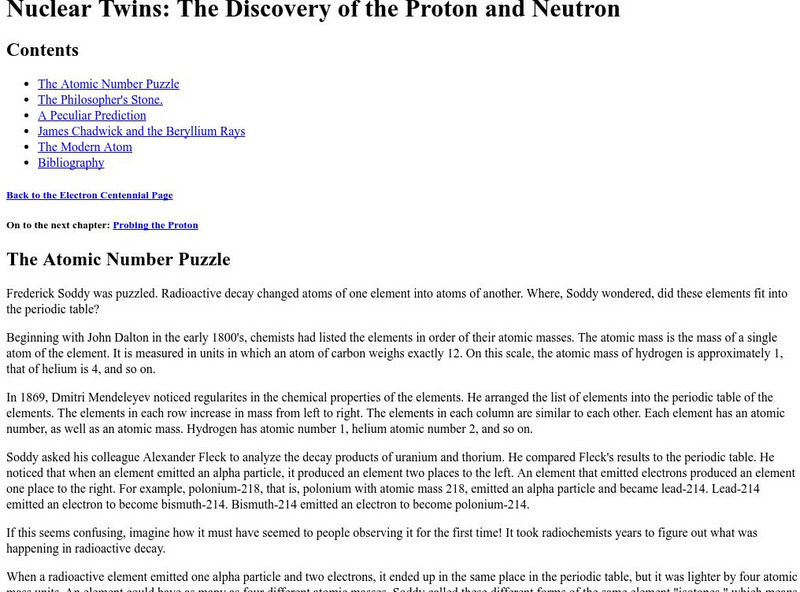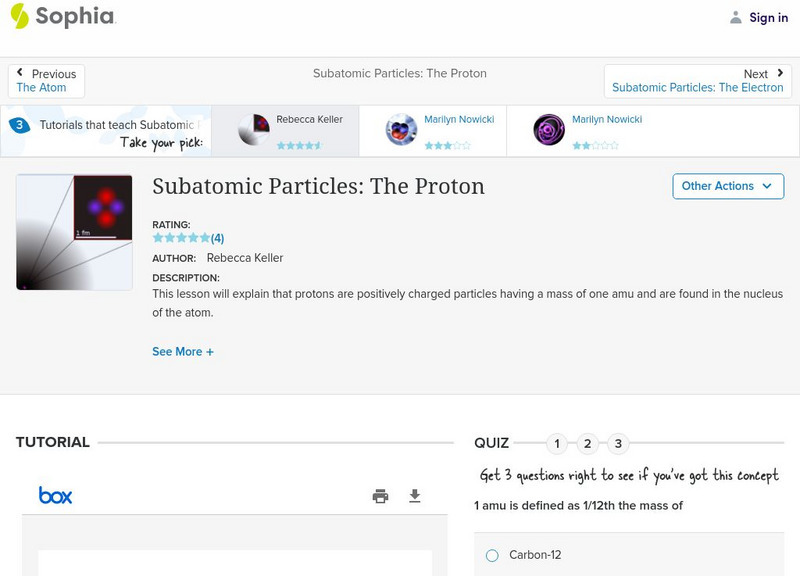Curated OER
Popcorn Neutrino Lab
Students parcticipate in a modeling activity that simulates the cyclical role of experimental and theoretical science. Initially, students measure the mass of popcorn. They also record predictions of the mass of the kernels after they...
Curated OER
Organization of the Elements and Periodic Table
Learners identify how to relate the position of an element in the periodic table to its atomic number and atomic mass. They also identify and interpret how to use the periodic table to identify metals, semimetals, nonmetals, and...
Curated OER
Basic Chemistry Review
Students experiment to show their knowledge of molecules and atomic structures. In this chemistry review lesson students participate in an activity and then fill out a worksheet.
California State University
California State University: Proton, Electron, Neutron
An interesting and useful tool to practice recognition/calculation of atomic number, mass, and number of neutrons, electrons, etc. Can be used with all elements.
PBS
Nova: Atom Builder
Find out if you know enough about atoms to build them. The goal of the activity is to build an atom of a particular element by dragging the correct numbers of neutrons, protons and electrons into the atom.
Math Science Nucleus
Math/science Nucleus: Electrons and the Hairy Monster
This animation discusses electrons and the properties of electrons in a storybook format featuring hairy monsters, strange rocks, and fun animations.
Scholastic
Scholastic: Study Jams! Science: Matter: Atoms: Protons, Neutrons, Electrons
A video and a short quiz on the parts of an atom, the periodic table, and molecules.
Thomas Jefferson National Accelerator Facility
Jefferson Lab: It's Elemental: Element Math Game
The interactive activity examines the Periodic Table of Elements. Learners answer questions about the number of protons, electrons, neutrons, or nucleons that an atom of an element contains.
Utah Education Network
Uen: Atom in a Bag
Learners will use bags of beads with known quantities of electrons, neutrons and protons to identify the element that they represent.
Sophia Learning
Sophia: Subatomic Particles: The Electron: Lesson 3
This lesson will explain that electrons are negatively charged particles with negligible mass and are found in pairs in orbitals surrounding the nucleus of an atom. It is 3 of 3 in the series titled "Subatomic Particles: The Electron."
American Chemical Society
Middle School Chemistry: Protons, Neutrons, and Electrons
Explore the particles that make up atoms: protons, electrons, and electrons.
Science Struck
Science Struck: How to Find Protons, Neutrons and Electrons
Brief explanations of how to determine how many protons, neutrons, and electrons are in an element.
American Chemical Society
Middle School Chemistry: Protons, Neutrons, and Electrons
Investigate why a charged object is attracted or repelled by another charged object. Explore the concept that the attraction between positive protons and negative electrons holds an atom together.
Other
University of Kansas: Quarked!: Matter Mechanic
Build elements and molecules using neutrons, protons, and electrons. Choices include helium, carbon, oxygen, aluminum, water, and salt.
TeachEngineering
Teach Engineering: The Fundamental Building Blocks of Matter
This lesson plan explores the fundamentals of atoms and their structure. The building blocks of matter (protons, electrons, neutrons) are covered in detail. Students think about how atoms and molecules can influence new technologies...
TeachEngineering
Teach Engineering: Mixtures and Solutions
This unit covers introductory concepts of mixtures and solutions. Students think about how mixtures and solutions, and atoms and molecules can influence new technologies developed by engineers. The first lesson explores the fundamentals...
Science Struck
Science Struck: What Makes Up an Atom?
Describes the structure of an atom and the characteristics of the electrons, neutrons, and protons inside it. Includes some interesting facts about atoms.
California State University
Csudh Project for Chemistry: Protons, Electrons, and Neutrons
This page is an exercise in relating the number of protons, electrons, and neutrons for an atom or monoatomic ion.
Other
Nuclear Twin: The Discovery of the Proton and Neutron
Trace the history of the discovery of protons and neutrons in this informative site.
Concord Consortium
Concord Consortium: Atom and Ion Builder
Explore how changing the numbers of protons, neutrons, and electrons affect the type of atom.
CK-12 Foundation
Ck 12: Structure of the Atom
[Free Registration/Login may be required to access all resource tools.] Students learn about the important discoveries of subatomic particles, and how they led to our current understanding of the atom.
Sophia Learning
Sophia: Subatomic Particles: The Neutron: Lesson 2
This lesson will explain that neutrons are particles in the nucleus that have no charge and a mass of one amu. It is 2 of 3 in the series titled "Subatomic Particles: The Neutron."
Sophia Learning
Sophia: Subatomic Particles: The Proton: Lesson 2
This lesson will explain that protons are positively charged particles having a mass of one amu and are found in the nucleus of the atom. It is 2 of 3 in the series titled "Subatomic Particles: The Proton."
Ducksters
Ducksters: Science for Kids: The Atom
Kids learn more about the science of the atom. Electrons, neutrons, and protons make up the smallest bits of matter.
Other popular searches
- Protons Neutrons Electrons
- Protons, Neutrons, Electrons
- Protons, Neutron, Electrons
- Protons, Electrons, Neutrons
- Protons Neutrons, Electrons
- Protons Neutron Electrons
- Neutrons, Electrons, Protons
- Protons Neutrons and Electrons
- Protons , Neutrons, Electrons








